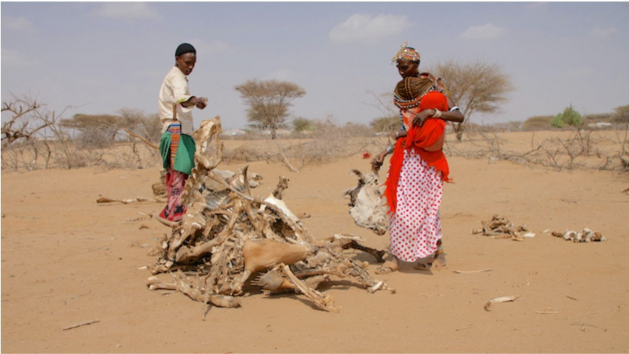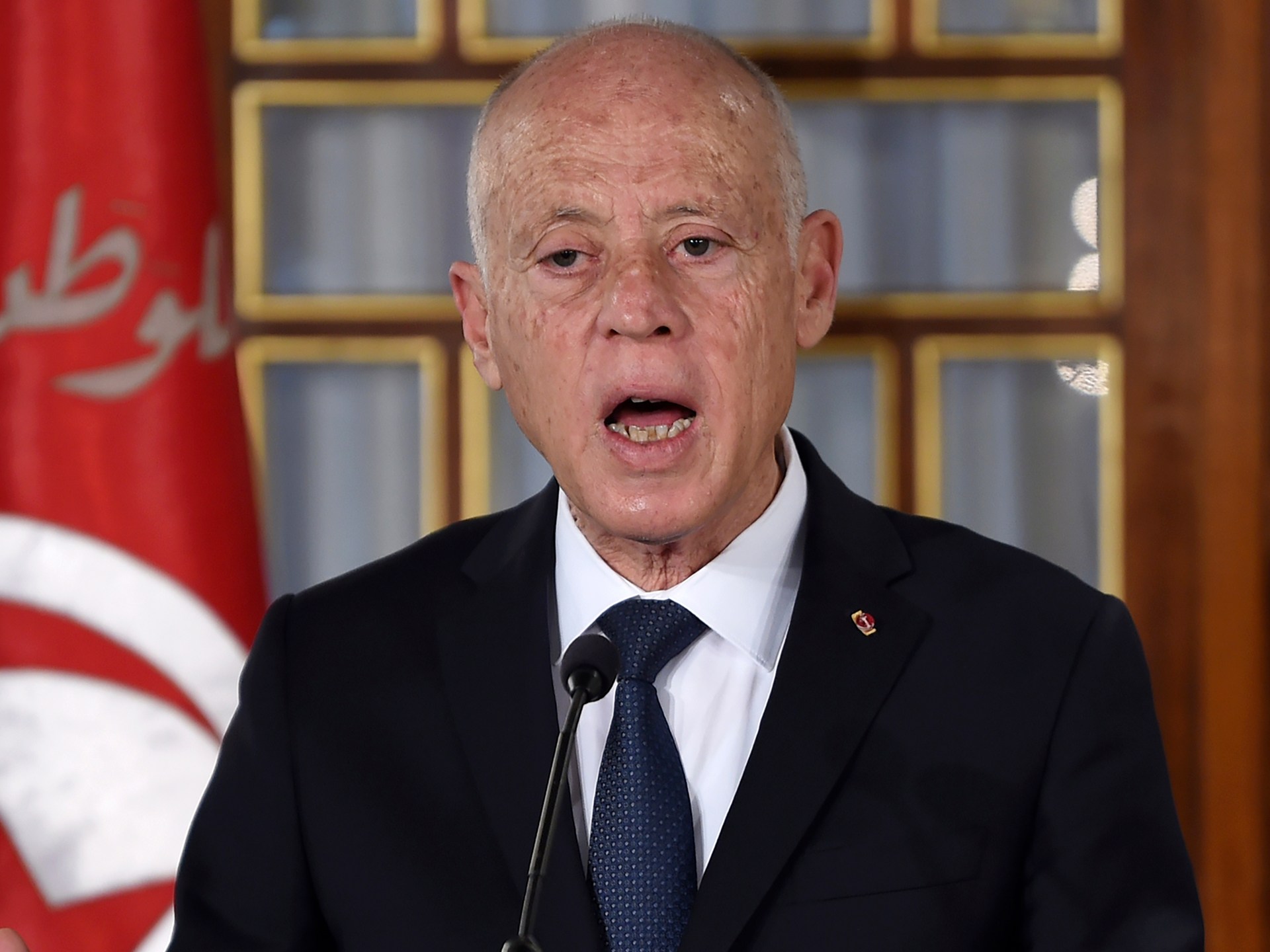Hunger in East Africa Is a True Testament to Climate Injustice — Global Issues
NAIROBI, Sep 06 (IPS) – From 2017, Shamso Isac has helplessly witnessed the demise of all her sources of income. Failed rain seasons and dried-up water sources meant a lack of pasture, which led to the death of her livestock. Widespread hunger exacerbated by rising food costs forced her to relocate to Burlhedi internally displaced persons camp in Baidoa in the Southwest state of Somalia. She recalls walking for weeks seeking a place she could get food for her family. When her child asks for something to eat or drink, she has nothing to offer; all she can do is cry, overwhelmed by the utter hopelessness she feels.
Shamso’s story mirrors that of millions across East Africa and many other parts of the world. Despite contributing a mere 0.1% of global emission, millions are bearing the harshest impact of climate change with over 31.5 million people across Ethiopia, Kenya, Somalia, and South Sudan experiencing the worst episode of climate-induced extreme weather, which is fuelling an alarming hunger crisis.
The devastating droughts and floods in these four East African countries have also costed the region an estimated $30 billion losses from 2021 to the end of 2023 with Oxfam calculating that approximately $7.4 billion worth of livestock have perished, pushing farmers and pastoralists deeper into poverty.
Climate change has resulted in the rise of the global temperature by up to 1.2° Celsius making the severity of East Africa’s drought 100 times more likely. The poorest people in some of the least responsible regions for climate change or emissions – like East Africa – are losing their lives and livelihoods to human-induced climate change. Rich industrial countries are responsible for 92% of excess emissions.
Yet, it is the people like those in Ethiopia, Kenya, Somalia and South Sudan that are facing a multitude of detrimental social, economic and health impacts that are exacerbated by climate change. Small island nations are losing their land to rising oceans and if this trajectory persists, entire countries could disappear under rising sea levels. The climate crisis is a human tragedy and is making existing inequalities and injustices a whole lot worse.
Climate justice demands that those responsible for causing the crisis must be held accountable, and those most affected must get adequate support to adapt to the problems and mitigate them. Why does this matter? It matters because it compels the global community and those primarily responsible for the climate crisis to work with and support those who bear the heaviest burden.
It matters because it addresses a more systemic problem that is the fundamental cause of this crisis and many others. The problem is an economic model that is fossil-dependent and designed to benefit a select few, the super-rich, and that’s causing a planetary crisis and aggravating social injustices around the world.
A fundamental shift is needed to effectively tackle this injustice, without which, extreme weather conditions will recur more frequently and with increasing intensity leading to more hunger and human suffering in the future in countries where people have done the least to contribute to climate change.
As a crucial starting point, the governments of industrialized countries must pay their fair share of climate finance and honour their commitment to provide 0.7% of their Gross National Income to the Global South countries including the $8.74 billion needed to support for the humanitarian response in Ethiopia, Kenya, Somalia, South Sudan in order to save lives and livelihoods.
To fill this gap, governments in the affluent and in the industrialised nations must ensure companies and the rich are paying their fair share of taxes, not least those profiting from harming the planet. This will enable these countries and communities at the frontline to start building back and build resilience for the next climate shock.
Secondly, the top polluting countries must pay their fair share of the climate finance to East Africa to help its governments scale up their climate mitigation and adaptation so they can help the most impacted communities to recover from climatic shocks. These funds should no longer be in the form of loans but as grants.
Finally, industrialized polluting countries should commit to paying their fair share of the losses and damage suffered by East Africa countries. Estimates show that these polluters owe $8.7 trillion to developing countries, including in Africa. This finance will be crucial to support communities and countries to adapt to climate change, recover from damage and loss and to transition to clean development.
We need to embrace a fundamental, systemic change. Even as we’re saving lives through the humanitarian response, we must also focus on the root causes of the climate change crisis and food insecurity.
Hunger is unacceptable in the 21st century. To witness millions suffering from lack of food in a world of plenty and in a world where billionaire wealth has exploded, is an abomination. The hope side of this doom-and-gloom scenario is that we have the resources in the world to address these challenges. The right leadership and political choices can end hunger. The time to act is now.
Fati N’Zi-Hassane is the Oxfam in Africa Director at Oxfam International. Amitabh Behar is the Interim Executive Director at Oxfam International
© Inter Press Service (2023) — All Rights ReservedOriginal source: Inter Press Service
Check out our Latest News and Follow us at Facebook
Original Source






